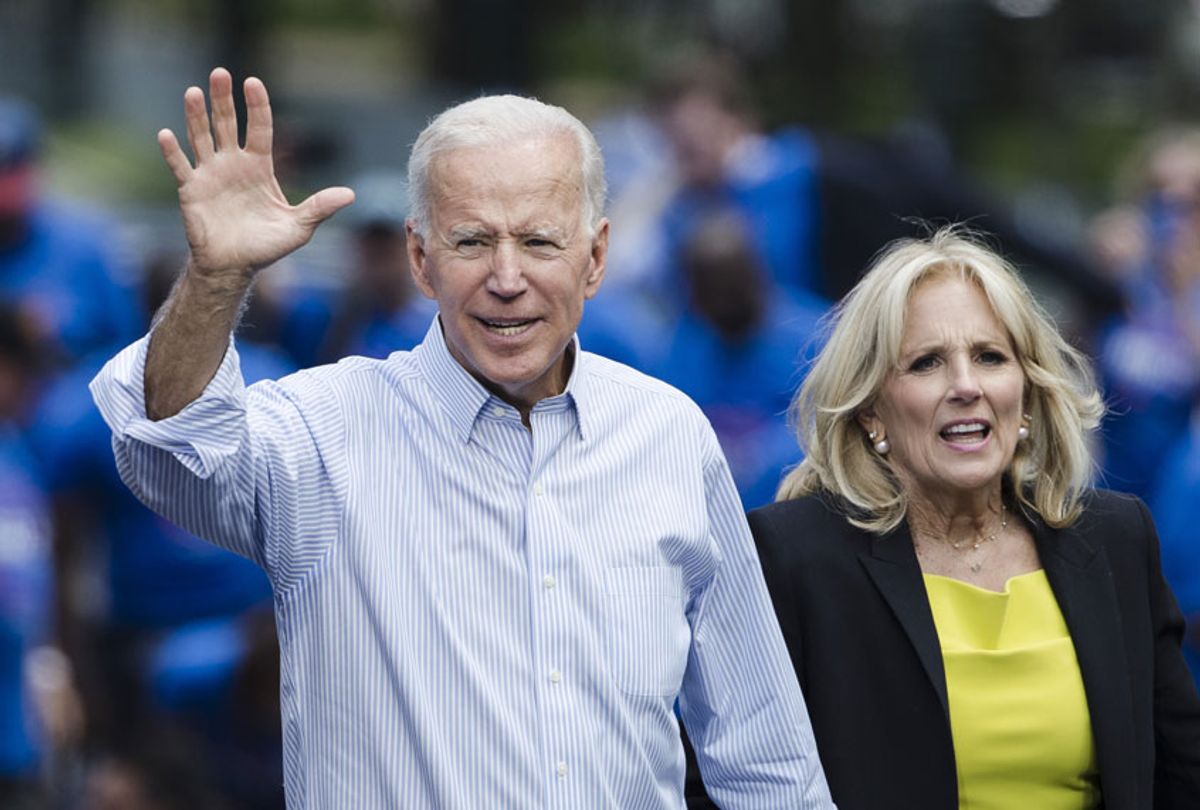Newly-released financial disclosures and tax returns reveal that former Vice President Joe Biden and his wife earned $15 million in the two years since President Barack Obama's White House tenure came to a close.
The Bidens have earned millions from book deals and public speaking engagements since leaving public office, according to Politico. The former vice president also received $540,484 in salary from the University of Pennsylvania and netted more than $4 million total from more than four dozen speeches delivered in late 2017 and 2018. On one occasion, he earned $235,000 for delivering a single speech. Biden even created a corporation to handle his post-White House book and speaking deals, which is currently valued between $1 million and $5 million.
The Bidens' lush financial standing, which allowed them to rent one home in the Virginia suburb of McLean and buy a $2.7 million house in the Delaware beach town of Rehoboth, starkly contrasts with their previous financial situation. During his 44 years in public service as a senator and vice president, Biden lived off of his government salary. By the time his vice presidency ended, disclosure forms revealed that the former second couple had $303,000 to $1 million in assets and $560,000 to $1.2 million in liabilities. Overall, the Bidens earned $11 million in 2017 and $4.6 million in 2018, compared to their $396,000 salary in 2016.
The revelations go against Biden's reputation as "middle-class Joe," which he carefully cultivated and became a cornerstone of his political image. During a campaign stop in Kentucky as he stumped for Democrats in the 2018 midterm elections, Biden told an audience, "I know, as I said, that I’m called 'middle-class Joe.' It’s not meant as a compliment — it means I’m not sophisticated. That’s been my handle for the last 40 years. But I know what made the country what it is: ordinary people doing extraordinary things." One year earlier, on the day he left the vice presidency, he told CNN that he had made "8,200 round-trips, over 2 million miles on Amtrak," which amounted to "259 miles round trip a day — not everyday, but on average 217 days a year."
Biden's newfound wealth is not the only aspect of his candidacy that could prove controversial among progressives. The former vice president has come under fire over his record on race, including his past support for draconian anti-crime legislation that resulted in mass incarceration. And perhaps the standout moment from the first pair of Democratic debates was when rival Sen. Kamala Harris called out Biden for his past opposition to school busing, a policy she said she directly benefited from as a child.
"It was hurtful to hear you talk about the reputations of two United States senators who built their reputations and career on the segregation of race in this country," Harris told Biden. "And it was not only that: You also worked with them to oppose busing."
She added, "There was a little girl in California who was part of the second class to integrate her public schools, and she was bused to school every day. That little girl was me. So, I will tell you that on this subject, it cannot be an intellectual debate among Democrats. We have to take it seriously. We have to act swiftly."
Although Harris has skyrocketed in many national polls following this confrontation, Biden maintained his perch at the top of the Democratic race in this week's Morning Consult poll over other top contenders like Sens. Bernie Sanders of Vermont and Elizabeth Warren of Massachusetts and South Bend Mayor Pete Buttigieg.



Shares